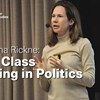cerning
Distributive justice, social cooperation, and the basis of equality
Theoria Abstract This paper considers the view that the basis of equality isthe range property of being a moral person. This view,suggested by John Rawls in hisA Theory of Justice(1971),is commonly dism
Studies on climate ethics and future generations vol. 3
Working paper series 2021:1-10 Joe Roussos & Paul Bowman (eds) This volume comprises the third collection of working papers by researchers within the program Climate ethics and future generations.Th
Completed: Written meaning
The purpose of the project is to stimulate and discuss knowledge-based text production alongside the dominant academic formats, to contribute to more animated writing and readable texts by scholars, and thereby enlarge their audience.
Studies on climate ethics and future generations vol. 2
Working paper series 2020:1–11. Paul Bowman & Katharina Berndt Rasmussen (eds) This volume comprises the second round of preprint papers written as part of the Climate ethics and future generations

Johanna Rickne: The Class Ceiling in Politics
Research seminar with Johanna Rickne, professor of Economics at SOFI, Stockholm University Abstract: Prior studies have documented that working-class individuals rarely become parliamentarians. We kno
Cohort Effects on Earning Profiles: Evidence from Sweden
This paper estimates cohort size effects on earning profiles and whether these are affected by an individual’s position in the Swedish Baby Boom and Baby Busts. Amongst other, it is found that higher
Learning to play
In 2007, the Swedish gambling agency ran a simple gambling game called LIMBO. Gamblers were invited to stake 10 kronor on a number of their choice between 1 and 99,999. The person choosing the smalles
Research seminar with Johanna Rickne: The Class Ceiling in Politics
Venue: Institutet för framtidsstudier, Holländargatan 13, 4th floor, Stockholm, or online.Research seminar with Johanna Rickne, professor of Economics at SOFI, Stockholm University.Register hereAbstracPrior studies have documented that working-class individuals rarely become parliamentarians. We know less about when in the career pipeline to parliament workers disappear, and why. We study these questions using detailed data on the universe of Swedish politicians’ careers over a 50-year period. We find roughly equal-sized declines in the proportion of workers on various rungs of the political career ladder ranging from local to national office. We reject the potential explanations that workers lack political ambition, public service motivation, honesty, or voter support. And while workers’ average high school grades and cognitive test scores are lower, this cannot explain their large promotion disadvantage, a situation that we label a class ceiling. Organizational ties to blue-collar unions help workers advance, but only to lower-level positions in left-leaning parties. We conclude that efforts to improve workers’ numerical representation should apply throughout the career ladder and focus on intra-party processes.
Generationally Parochial Geoengineering: Early Warning-Signs of a Basic Threat
In: Mosquera, J. & O. Torpman (ed.),Studies on Climate Ethics and Future Generationsvol. 6. Working Paper Series 2024:10–17 Abstract ‘Geoengineering' has come to refer to massive technological inter
Learning the Natural Numbers as a Child
Noûs 53 (1), 3-22 Abstract How do we get out knowledge of the natural numbers? Various philosophical accounts exist, but there has been comparatively little attention to psychological data on how the lea








